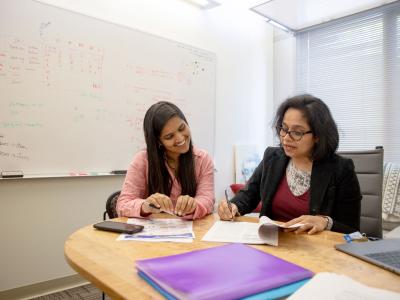Running in the real world
Houssam Abbas (right) works with students on building a one-tenth scale autonomous race car in the College of Engineering at Oregon State University. Photo by Hannah O'Leary.
As the world becomes more dependent on the safe operation of autonomous vehicles and medical devices, the research in testing such systems becomes more critical. The challenge of developing control and verification algorithms for such safety-critical systems is what excites Houssam Abbas about his work.
And although his research begins with theory, it is more than that.


